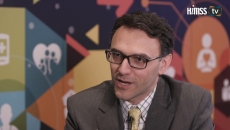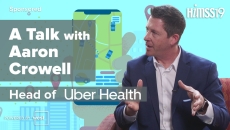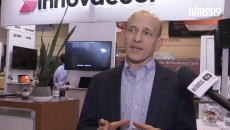Videos
Chair of AMA Board of Trustees Dr. Jack Resneck, Jr., discusses the need to validate healthcare innovations and how technology can either improve or reinforce disparities around outcomes in healthcare.
Sam Hanna, professor and associate dean at American University, says both technology and communication between patient and provider are necessary to effectively implement patient engagement.
Rideshare technology can improve access to care for the elderly, low-income patients and those who have chronic and complex care needs, according to Aaron Crowell, head of Uber Health.
Dr. David Nace, chief medical officer of Innovaccer, says ZIP code-level data about risk indicators and social vulnerability of patients and populations exists, so now it should be refined and presented to clinicians to enable better care.
BeCare Link is using artificial intelligence to better manage multiple sclerosis patients and lower fall risk, says Alan Gilbert, CEO of the digital therapeutic company.
EverlyWell is helping transform the process of getting laboratory tests by expanding and improving access, affordability and convenience for the consumer, says founder and CEO Julia Cheek.
The value of Health 2.0 is as a convener – exposing longtime healthcare professionals to new ideas from innovative companies, and helping those startups learn from experts, says Danielle Cocanougher, director of strategic partnerships at myLAB Box.
Emma Cartmell, founding partner of Cartmell Ventures, talks about big changes coming in digital health and describes her investment philosophy.
Will Reilly, VP of client and consumer marketing at VisitPay, says the rise in patient responsibility means revenue cycle teams have to figure out how to engage them and work more closely with marketing.
The consumer electronics maker is offering its mobile devices and Knox software platform as the powerhouse behind its partners' healthcare solutions, explains Samsung Healthcare Senior Manager Jerry Berger.









